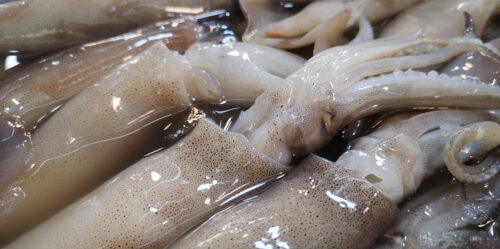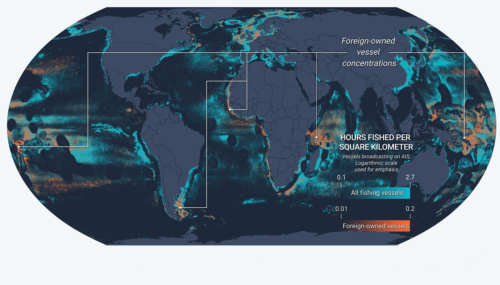Dr. Michael Hirshfield oversees Oceana’s new offices in the Philippines, Canada and Brazil, and ensures that Oceana’s policy advocacy is solidly based on the latest scientific information. Throughout his long career, Dr. Hirshfield has worked on issues related to fisheries and aquatic ecosystems from a variety of viewpoints. As a scientist, he directed the Academy of Natural Sciences of Philadelphia’s Estuarine Research Laboratory in Benedict, Maryland. At the state government level, he ran the Chesapeake Bay Research and Monitoring Division and the Power Plant Research Program for the Maryland Department of Natural Resources. As a conservationist he has worked to ensure sustainability of the world’s oceans. Dr. Hirshfield was part of the Global Fishing Watch team that contributed to an article authored by Dr. Douglas McCauley in Science magazine titled “Ending Hide and Seek at Sea” that demonstrated how big data can help improve ocean management.
You began your career as a scientist, was there a specific event or situation that drove you to switch to advocacy?
Absolutely. I expected to be a pure researcher, probably a professor at a university. When I took the job on the Chesapeake Bay [at the Estuarine Research Laboratory] part of the responsibility was to try to understand the impacts of power plants on the Chesapeake. I found myself getting more interested in what the people at the Maryland Department of Natural Resources were doing with our reports than I was in getting the information that went into the reports. I remember thinking, boy, if I were in the Department of Natural Resources, here are some of the things that I’d try to do. I shifted because seeing the interaction of human activities on the Chesapeake—starting with power plants but with other impacts as well—led me to want to do something about it.
That’s why I spent seven years working for state government on questions like: What are power plants potentially going to do to the Chesapeake; what can we understand about their existing impacts; and what should we do about saving the Chesapeake?
After seven years, I ultimately became frustrated with the slow pace and inevitable compromises that came with working in government, and I decided to shift to being an advocate, which ultimately led me to Oceana.
Mixing science and advocacy can be inherently risky. How do you personally strike a balance?
I think it is essential for scientists to make it clear when they’re speaking from a scientific point of view versus when they’re speaking from their values. A scientist should never say, “The science says we need to. . ,” because science doesn’t tell you what you have to do. It doesn’t say, “We need a healthy Chesapeake” or, “We need a healthy fish population.” Science just says “OK, you say you want to have a healthy Chesapeake Bay, here’s our best understanding of the consequences of different kinds of activities.”
What I like about being an advocate is I am entitled to, and indeed required to, express my values and Oceana’s values. But I make it clear that there are two different sentences that come from scientists. The first is, here’s how things look today, and here’s where they’re likely to go if activities A, B and C continue or get better or worse. That’s speaking as a scientist. Then there’s the second, which is, here’s what we recommend you do about it. That’s speaking as a human.
What was one of the biggest take-home messages from the recent article in Science?
The process of writing that article made me realize how many people out there in the scientific community are interested in the same questions as we are. They want to know how we can use the technology and big data to help in conservation. That was really gratifying.
The other big takeaway was that for us to be really successful in the long run, we not only need Global Fishing Watch, but we need more fishing vessels using AIS that can go into Global Fishing Watch. Ultimately I’d like to see countries around the world say, “If you want to fish in our waters, you’ve got to have AIS” or, “If you want to land fish in our ports, you need to have AIS.”

